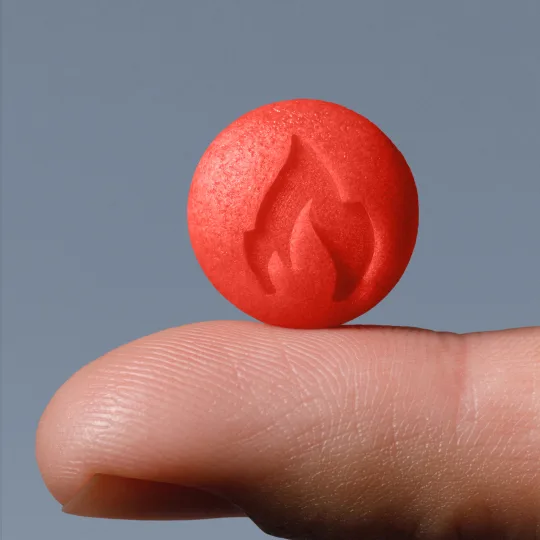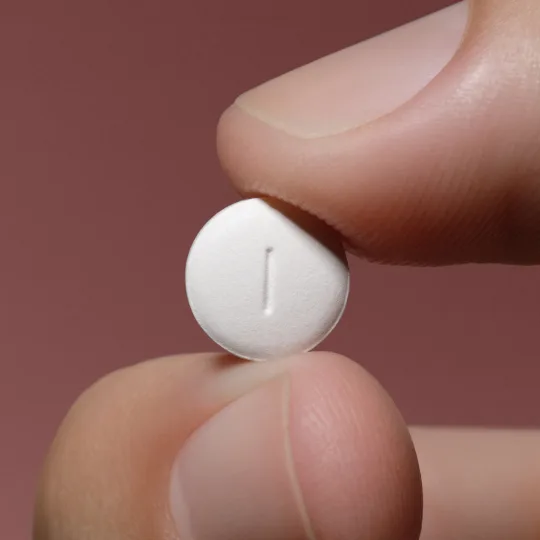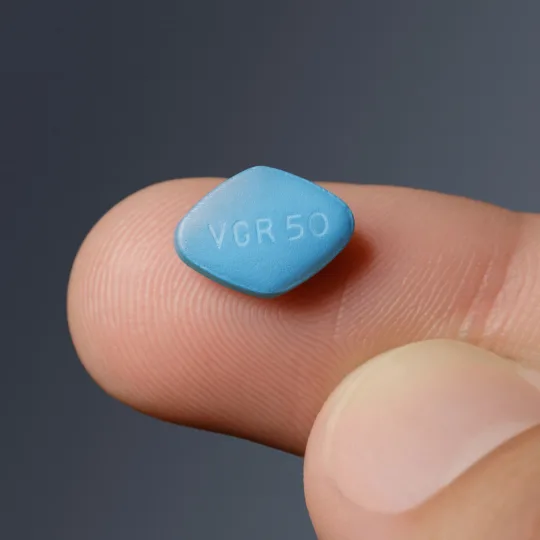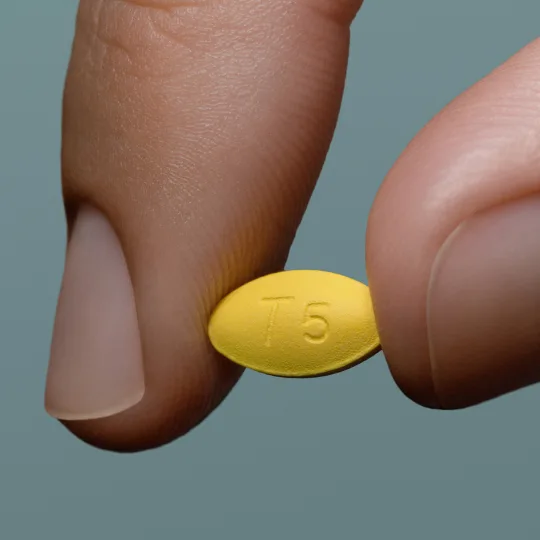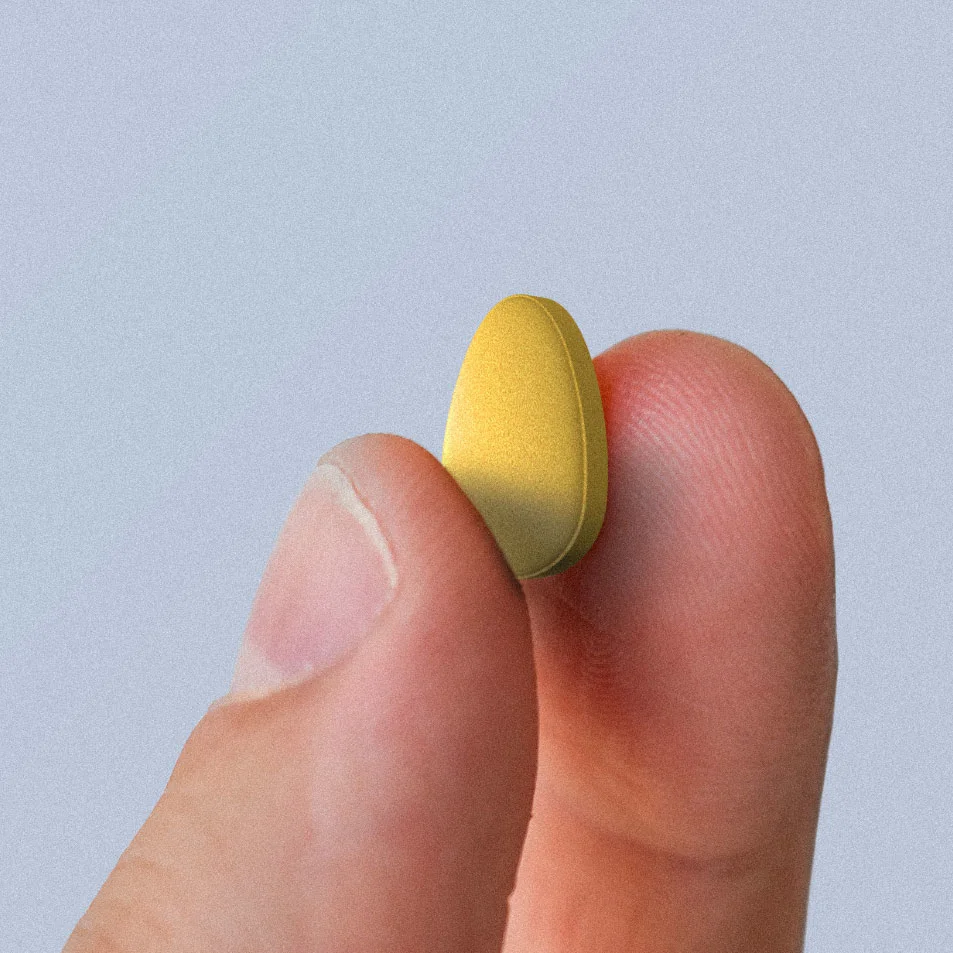Key takeaways
There is some evidence to suggest Viagra makes you last longer, though results from research studies are mixed and inconsistent.
Viagra may only help you last longer if you are having trouble getting or maintaining an erection.
Some healthcare providers prescribe Viagra off-label for premature ejaculation, but Viagra is not FDA-approved for this purpose.
There are other more effective ways to last longer in bed, such as the squeeze method, the stop-start method, and sex therapy.
Here's what we'll cover
Here's what we'll cover
Key takeaways
There is some evidence to suggest Viagra makes you last longer, though results from research studies are mixed and inconsistent.
Viagra may only help you last longer if you are having trouble getting or maintaining an erection.
Some healthcare providers prescribe Viagra off-label for premature ejaculation, but Viagra is not FDA-approved for this purpose.
There are other more effective ways to last longer in bed, such as the squeeze method, the stop-start method, and sex therapy.
Wondering if Viagra can help you last longer in bed? You’re not alone. While Viagra (sildenafil) is FDA-approved to treat erectile dysfunction (ED), some people use it off-label for premature ejaculation (PE)—but with mixed results.
Orgasming sooner than you or your partner would like during intercourse, can have several causes. Ejaculating too quickly from time to time may not be considered a medical condition and can be very normal. But if the problem happens repeatedly, this could be premature ejaculation.
While ED medication may be a treatment option for PE, the science is a bit more complicated. Here’s what to know before you take Viagra to last longer in bed.
Does Viagra make you last longer?
Viagra (sildenafil) may help some people last longer in bed — but the evidence is mixed. While a few studies show promising results, others suggest the effect may be limited or inconsistent. It is important to note that Viagra is not FDA-approved for premature ejaculation, but some providers may prescribe it off-label for PE.
Does it work? Here’s what the research says:
Some studies show increased time to ejaculation.
A 2007 study of 180 men with premature ejaculation found that those who took 50 mg of sildenafil (compared to a placebo and other treatments) as needed:
Lasted longer during sex (measured from penetration to ejaculation)
Reported greater sexual satisfaction
Had a lower severity of PE
These effects were maintained at both 3-month and 6-month follow-ups.
However, an earlier study showed less impressive results.
In an earlier study of 144 men, those who took Viagra vs. a placebo had slightly longer ejaculation times — but the difference wasn’t statistically significant.
They did, however, have a shortened refractory period (the time required to recover after sex) and increased overall satisfaction.
Viagra combined with other drugs may help with PE.
A more recent study tested Viagra combined with tramadol hydrochloride (a pain reliever used for moderate-to-severe pain that also has an effect on serotonin) for premature ejaculation.
This study found that taking the combined medication did reduce the instances of PE as compared to the placebo.
Another study looked at whether sildenafil worked to treat PE when combined with antidepressants known as SSRIs such as paroxetine and found that those who took sildenafil plus an SSRI experienced a decrease in premature ejaculation when compared to those taking SSRIs alone.
Overall, there is some favorable evidence for Viagra and other PDE-5 inhibitors for the treatment of PE, but studies report different findings, and results aren’t very consistent across studies. Viagra has not been FDA-approved to treat premature ejaculation (in fact, no medication has been FDA-approved to treat PE).
Have better sex with Ro
Why Viagra may help with PE
While more research is needed to understand if Viagra is an effective treatment for premature ejaculation, its ability to enhance blood flow and maintain erections is thought to indirectly contribute to increased sexual endurance. Researchers believe Viagra’s impact on the nervous system may help with premature ejaculation in the following two ways (mediated by nitric oxide):
By relaxing smooth muscles in the penis, facilitating blood flow for stronger, longer-lasting erections and potentially delayed ejaculation.
By reducing hypersensitivity by managing sensory feedback from the penis, allowing for better control over ejaculation. This aspect is more controversial, as some believe Viagra does not have a significant impact on sensory pathways, while others believe by enhancing the effects of nitric oxide, Viagra can have effects on nerves as well.
Understanding the effects of Viagra on PE is ongoing research. While Viagra shows promise in increasing ejaculatory control, it’s not a definitive treatment for PE.
Why isn’t Viagra approved for PE?
Viagra isn’t FDA-approved for treating premature ejaculation because it was originally developed and tested to treat erectile dysfunction. Although some studies suggest that Viagra might help with PE by improving ejaculatory control and confidence during sex, the results are not strong or consistent enough for FDA approval. The FDA requires strong evidence showing that a drug is both safe and effective for any new use, and expensive, time-consuming clinical trials.
Your healthcare provider may prescribe Viagra for PE as an off-label prescription, but it is not currently an FDA-approved medication for PE.
How long should you last in bed, anyway?
The short answer is however long you and your partner want you to. But if you're interested in what others have to say about it:
A 2005 study published in the Journal of Sexual Medicine asked a group of sex therapists how long sex should last (specifically, penetrative vaginal sex). The results: 1 to 2 minutes was judged "too short," and 10 to 30 minutes "too long." On the other hand, 3 to 7 minutes was rated "adequate" and 7 to 13 minutes “desirable”.
Another study asked 500 couples to press a stopwatch at the start of penetration, and then again at ejaculation for one month. Reported durations ranged from 33 seconds to 44 minutes, and there were differences between countries as well. But the average international duration for vaginal sex was three to seven minutes, with 5.4 minutes the precise median.
1. The squeeze method
If you're ejaculating too quickly for your or your partner's satisfaction, there are several strategies you can try to last longer, including the squeeze method. With this technique, begin sexual activity and continue until you feel almost ready to ejaculate. Then, you or your partner should squeeze the end of your penis at the point where the head (glans) joins the shaft. Hold the squeeze for several seconds, and the urge to ejaculate may subside.
2. The stop-start method
Also known as "edging," you can practice the stop-start method with a partner or alone. Masturbate until you feel like you're about to ejaculate, then pause until the urge to ejaculate passes. Resume stimulating yourself. Over time, you'll learn to recognize when you're approaching "the point of no return" and be able to extend intercourse.
3. Numbing condoms, wipes, or creams
Creams, wipes, and even some types of condoms contain numbing medication, such as lidocaine or benzocaine, on the inside. This can reduce sensation, which might make you last longer. Anesthetizing creams sold over-the-counter (OTC) have the same effect. Remember, discuss the use of such treatments with a healthcare professional before trying them out on your own to make sure they are safe for you. When using wipes, follow the instructions and be sure to wait until the local anesthetic has dried. Otherwise, you might cause some of the numbing effects to affect your partner as well.
4. Selective Serotonin Reuptake Inhibitors (SSRIs)
Some selective serotonin reuptake inhibitors (SSRIs), like paroxetine and sertraline, can cause a side effect called "anorgasmia," which means achieving orgasm is difficult or impossible. However, when it comes to treating PE, a lesser version of this side effect may be a benefit. Studies have shown that sertraline, the active ingredient in Zoloft (a medication commonly prescribed to treat depression), can extend the time to ejaculation and enhance sexual satisfaction for patients and their partners. In fact, SSRIs can be prescribed off-label to treat premature ejaculation and SSRIs are mentioned in the International Society of Sexual Medicine’s guidelines for the treatment of premature ejaculation as being “usually effective in delaying ejaculation.”
5. Sex therapy
If you experience premature ejaculation as a result of performance anxiety, general anxiety surrounding sex, lack of confidence, or low self-esteem, a sex therapist may be able to help you. A sex-positive therapist or counselor will help you address the source of your anxiety and provide helpful exercises or tips for you to try in the bedroom.
6. Sex without penetration
Contrary to portrayals in TV and film, sex does not have to end after penile ejaculation. While premature ejaculation can be a stressful experience, it doesn't mean playtime is over. Explore other ways to fulfill the needs of you and your partner digitally, orally, with toys, and by paying attention to other erogenous zones.
Bottom line: does Viagra make you last longer?
Viagra is primarily designed to help men get and maintain an erection—not necessarily to delay ejaculation. However, some studies and anecdotal reports suggest it may help certain individuals last longer during sex, especially when premature ejaculation is related to performance anxiety or erectile dysfunction.
Here’s what you should know:
Viagra does not specifically treat premature ejaculation, which is a separate condition from erectile dysfunction.
Some men report lasting longer when using Viagra, which may be because it reduces anxiety and improves confidence.
Research is mixed: A few small studies suggest a potential benefit in combination with other treatments (like SSRIs), but Viagra alone or with other medications is not yet a proven solution for premature ejaculation.
If lasting longer is your main concern, it's best to talk to a healthcare provider or reach out to a provider at Ro about the most effective treatment options.
DISCLAIMER
If you have any medical questions or concerns, please talk to your healthcare provider. The articles on Health Guide are underpinned by peer-reviewed research and information drawn from medical societies and governmental agencies. However, they are not a substitute for professional medical advice, diagnosis, or treatment.
Viagra Important Safety Information: Read more about serious warnings and safety info.
Althof, S. E., McMahon, C. G., Waldinger, M. D., et al. (2014). An Update of the International Society of Sexual Medicine's Guidelines for the Diagnosis and Treatment of Premature Ejaculation (PE). Sexual Medicine, 2(2), 60–90. https://doi.org/10.1002/sm2.28. Retrieved from https://academic.oup.com/smoa/article/2/2/60/6956277
Chen, J., Mabjeesh, N. J., Matzkin, H., & Greenstein, A. (2003). Efficacy of sildenafil as adjuvant therapy to selective serotonin reuptake inhibitor in alleviating premature ejaculation. Urology, 61(1), 197–200. doi: 10.1016/s0090-4295(02)02075-7. Retrieved from https://pubmed.ncbi.nlm.nih.gov/12559295/
Corty, E. W. & Guardiani, J. M. (2008). Canadian and American sex therapists’ perceptions of normal and abnormal ejaculatory latencies: how long should intercourse last? The Journal of Sexual Medicine, 5(5), 1251–1256. doi: 10.1111/j.1743-6109.2008.00797.x. Retrieved from https://www.ncbi.nlm.nih.gov/pubmed/18331255
Kurkar, A., Reda, A., Shalaby, M. M., et al.(2023). Combined on-demand sildenafil citrate and tramadol hydrochloride is an effective and safe treatment for premature ejaculation: A randomized placebo-controlled double-blind clinical trial. Arab Journal of Urology, 22(2), 89-95. doi: 10.1080/20905998.2023.2287869. Retrieved from https://pubmed.ncbi.nlm.nih.gov/38481408/
McMahon, C. (1998). Treatment of premature ejaculation with sertraline hydrochloride. International Journal of Impotence Research, 10(3), 181–184. https://doi.org/10.1038/sj.ijir.3900344. Retrieved from https://www.nature.com/articles/3900344
McMahon, C. G., Stuckey, B. G., Andersen, M., et al. (2005). Efficacy of sildenafil citrate (Viagra) in men with premature ejaculation. The Journal of Sexual Medicine, 2(3), 368–375. https://doi.org/10.1111/j.1743-6109.2005.20351.x. Retrieved from https://linkinghub.elsevier.com/retrieve/pii/S1743609515311802
Melis, M. R. & Argiolas, A. (2021). Erectile Function and Sexual Behavior: A Review of the Role of Nitric Oxide in the Central Nervous System. Biomolecules, 11(12), 1866. https://doi.org/10.3390/biom11121866. Retrieved from https://www.mdpi.com/2218-273X/11/12/1866
Parnham, A. & Serefoglu, E. C. (2016). Classification and definition of premature ejaculation. Translational Andrology and Urology, 5(4), 416–423. doi: 10.21037/tau.2016.05.16. Retrieved from https://www.ncbi.nlm.nih.gov/pmc/articles/PMC5001991/
Waldinger, M. D., Quinn, P., Dilleen, M., et al. (2005). A multinational population survey of intravaginal ejaculation latency time. The Journal of Sexual Medicine, 2(4), 492–497. doi: 10.1111/j.1743-6109.2005.00070.x. Retrieved from https://www.ncbi.nlm.nih.gov/pubmed/16422843
Wang, W. F., Wang, Y., Minhas, S. & Ralph, D.J. (2007), Can sildenafil treat primary premature ejaculation? A prospective clinical study. International Journal of Urology, 14, 331-335. https://doi.org/10.1111/j.1442-2042.2007.01606.x. Retrieved from https://onlinelibrary.wiley.com/doi/abs/10.1111/j.1442-2042.2007.01606.x


